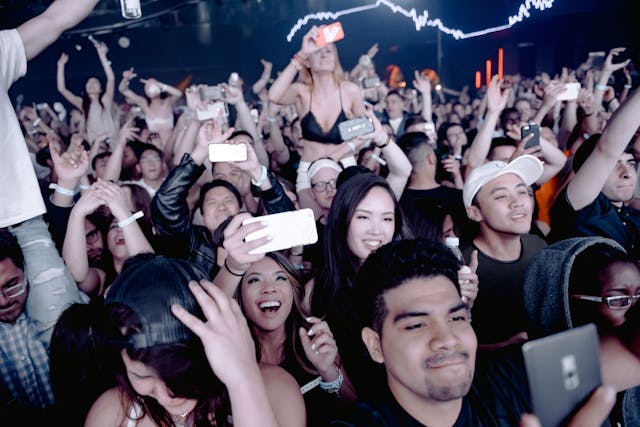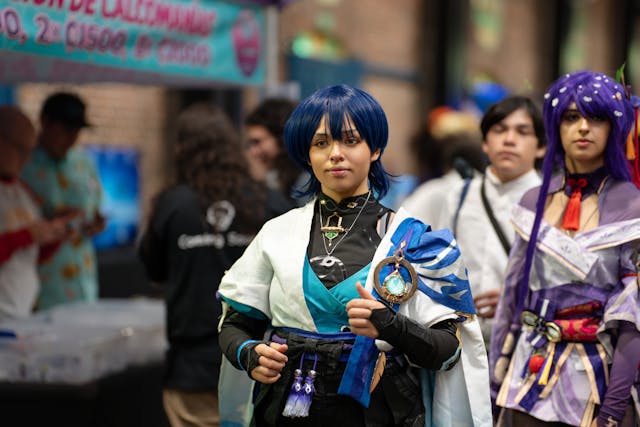Fan Culture: Exploring Fandoms and Fan Communities
In today's digital age, fan culture has grown into a massive and influential global phenomenon. Whether it’s following a favorite TV show, supporting a sports team, or obsessing over a book series, fandoms and fan communities play an integral role in bringing together like-minded people with a shared passion. Fans often bond over their love for a particular subject, creating vibrant, active communities both online and offline. In this article, we’ll explore the world of fandoms, why fan culture matters, and how these communities influence the media, entertainment, and even society at large.

What is Fan Culture?
Fan culture refers to the shared interests and activities of people who are passionate about a particular subject, be it a film, TV show, book, music, sports team, or video game. A "fandom" is the community formed by these passionate fans, and it often goes beyond just enjoying the content—it involves creating, sharing, and discussing content related to the fandom. These communities can be formed around popular media like "Harry Potter," "Star Wars," or "Marvel," but also less mainstream topics, such as cult-classic movies, indie music, or niche video games.
Core Elements of Fan Culture
-
Shared Passion: At the heart of any fandom is a shared love for a specific subject or piece of media.
-
Creativity: Fans often engage in creative activities like writing fan fiction, creating fan art, or making videos (e.g., fan edits or mashups).
-
Community: Fandoms are known for their strong sense of community, where people form friendships and support each other through shared experiences.
-
Discussions and Debates: Fans love to discuss, critique, and theorize about their favorite content, often leading to in-depth conversations or debates on social media and forums.
Why Do Fandoms Matter?
Fandoms do more than just celebrate their favorite media. They have a profound impact on both the creators and the industries that produce the content fans love. Here's why fandoms matter:
1. Shaping Media and Pop Culture
Fans play a pivotal role in shaping the media landscape. Fan feedback can influence the direction of a TV show, movie franchise, or video game. For instance, fan petitions and social media campaigns can sometimes result in new seasons of a show or the return of a beloved character. For example, the #SaveOurShores movement helped bring back the TV show "Brooklyn Nine-Nine," thanks to passionate fan support.
Fandoms also contribute to the creation of new subcultures and trends in popular culture. The rise of “geek culture” and "nerd chic" fashion is an example of how fandoms have gone from niche to mainstream, influencing everything from fashion to language.
2. Creating a Sense of Belonging
Fan communities offer a sense of belonging, especially for people who may not feel understood in their everyday lives. Being part of a fandom creates a shared identity and allows individuals to connect with others who share similar interests. Whether you're part of a fan group on Facebook, an online gaming community, or a local cosplay event, fandoms provide opportunities for socializing and building friendships.
3. Amplifying Diverse Voices
Many fandoms serve as a space for marginalized voices to be heard. Communities that focus on LGBTQ+ representation, racial diversity, or women in media allow fans to celebrate diverse characters and stories that may not always be represented in mainstream media. This creates a platform for fans to discuss the importance of diversity and inclusion in media and push for greater representation.
Types of Fandoms
Fandoms come in all shapes and sizes, and they span a wide variety of interests. Here are just a few examples:
1. TV and Film Fandoms
Fandoms surrounding TV shows, movies, and franchises like “Harry Potter,” “Game of Thrones,” or the Marvel Cinematic Universe (MCU) are some of the most well-known and widespread. These communities often form around particular characters, storylines, or worlds, and fans can engage through activities like watching episodes together, attending conventions, or creating fan art and fan fiction.
2. Music Fandoms
Music fans can be some of the most dedicated, whether it's a die-hard following of a particular band, genre, or solo artist. Fans of artists like Beyoncé, BTS, or Taylor Swift often form online communities, create tribute videos, and even participate in social media campaigns to support their favorite stars. Music fandoms also organize events such as fan meetups, concerts, and tribute acts.
3. Sports Fandoms
Fans of sports teams form some of the most passionate fandoms, with intense loyalty to their teams, whether it's football, basketball, or soccer. Sports fandoms not only watch the games but also actively support their teams by wearing merchandise, attending games, or participating in fan forums and online discussions. For many, being part of a sports fandom is about much more than just the game—it’s about team spirit, loyalty, and community.
4. Video Game Fandoms
Gaming fandoms are booming, with fans of video games like “Fortnite,” “League of Legends,” or “Minecraft” creating extensive online communities to share gameplay strategies, tips, and fan creations. These communities often host tournaments, live streams, and fan events, allowing gamers to bond over shared experiences and support one another in a competitive but friendly environment.
How Do Fandoms Form and Thrive?
Fandoms thrive in online spaces, where fans can easily connect with others from around the world. Here’s how these communities typically grow:
1. Social Media and Forums
Online platforms like Twitter, Instagram, Tumblr, and Reddit provide fans with the space to share their thoughts, artworks, and fan theories. These platforms often serve as the primary way for fandoms to connect, with hashtags, fan pages, and online discussions bringing fans together to share their enthusiasm and build relationships.
2. Conventions and Fan Events
Conventions like Comic-Con, fan expos, and music festivals provide fans with a physical space to meet, celebrate their fandoms, and interact with creators and celebrities. These events often feature panels, signings, and performances, allowing fans to immerse themselves in the content they love and connect with others in person.
3. Fan-Created Content
Fan-created content is a huge part of what keeps fandoms alive and growing. Whether it’s fan fiction, fan art, videos, or cosplay, fans love to create and share content based on the media they adore. This content helps keep interest in a particular subject alive, even long after a series has ended.

The Dark Side of Fandoms
While fandoms can be a source of joy, creativity, and community, they are not without their challenges. The intense passion within fandoms can sometimes lead to toxicity and unhealthy behavior. This might include online bullying, "gatekeeping" (where fans exclude others who aren’t seen as “true” fans), or excessive criticism of creators and actors.
It’s essential to remember that while fandoms can offer support and camaraderie, it’s important to create safe, inclusive spaces where everyone feels welcomed, respected, and valued.
Conclusion: The Power of Fan Culture
Fan culture is a testament to the power of shared passion and community. Whether you’re attending conventions, sharing fan art, or engaging in lively discussions online, fandoms create spaces where individuals can connect, express creativity, and find a sense of belonging. These communities not only influence the media and entertainment industries but also help shape social trends, diversity, and inclusion. As long as fandoms continue to celebrate and uplift each other, fan culture will remain a powerful force in our world.












